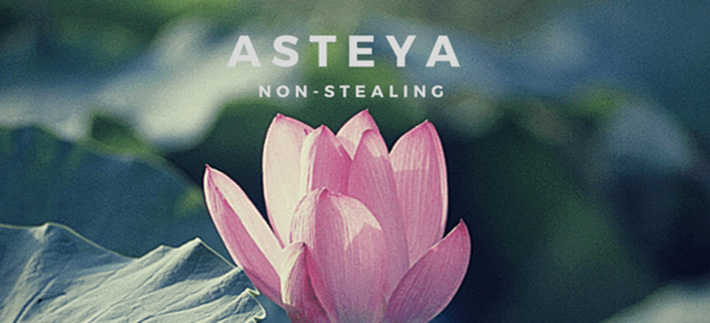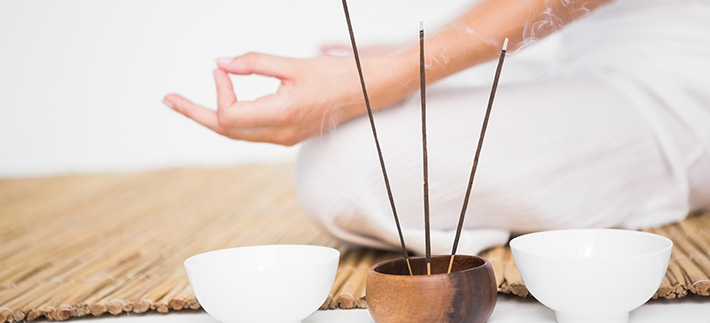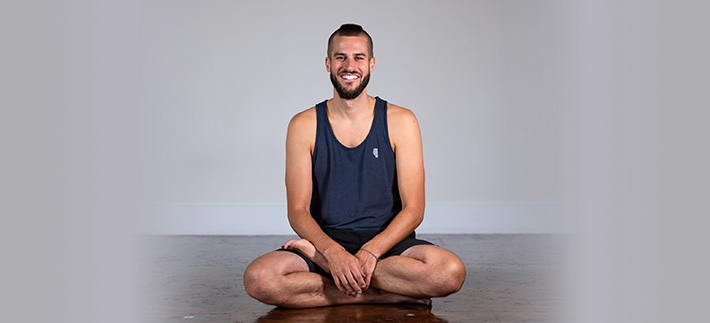
Spending Time with Tamara Terry
March 6, 2018
New Day New Year
March 19, 2018
MARCH 8, 2018
Translating Asteya (Non-stealing)
Asteya means not to steal. Not from yourself or from anyone else. Asteya is found in the first limb of Patanjali’s great eight limb path. This first path called the yamas is translated to meaning the “Laws of Life” and becomes our moral compass.
Asteya (non-stealing) is the third yama and comes after ahimsa (non-harming) and satya (honesty). When it comes to non-stealing we instantly think of the obvious – don’t take money from someone, or anything else for that matter!
While not taking that unlocked bike might seem like a sensible choice to make, Asteya goes beyond this. On the next level we contemplate hoarding items that are unnecessary or utilizing more resources than necessary, such as letting the faucet run while you brush your teeth.
But we can go deeper still – consider the act of stealing time. Time is something that, although set in a standard, reflects loosely to different people. Some are typically early, some are typically late. A little further beyond that reach we can see how managing our own time affects other people and how mismanaging this courteousness of time is stealing from others.
On the mat, we turn to the ego when pushing past certain boundaries within our practices. Often times we push ourselves into postures we are not ready for – disregarding ahimsa (non-harming). In this sense we steal from ourselves. If we allow ourselves to be open to accepting our yoga practice as it presents itself in the given moment, we reveal a state of self acceptance.
As we begin to contemplate Asteya on different levels, we can see just how this yama applies to so many different areas of yoga and life. Probably the richest application of this yama is in its encouragement to experience life just as it is. Do not ‘rob’ yourself of the experiences life has to offer.
Experience everything as it arises – happy emotions, exciting trips, falling in love are, for most, an obvious yes. But what about pain, grief, or a broken heart? While these may be experiences you try to avoid we are invited to be with all things and to experience all things. Every emotion is part of this human experience and each one is to be experienced. When we allow ourselves to be with what is without clinging to or avoiding we embrace all of life.
Being able to sit in these experiences, to feel what is out there to feel, and to do so in a way that is mindful of the needs of those around you, is what it truly is to embody the true meaning of Asteya.
– Chelsea Lees



